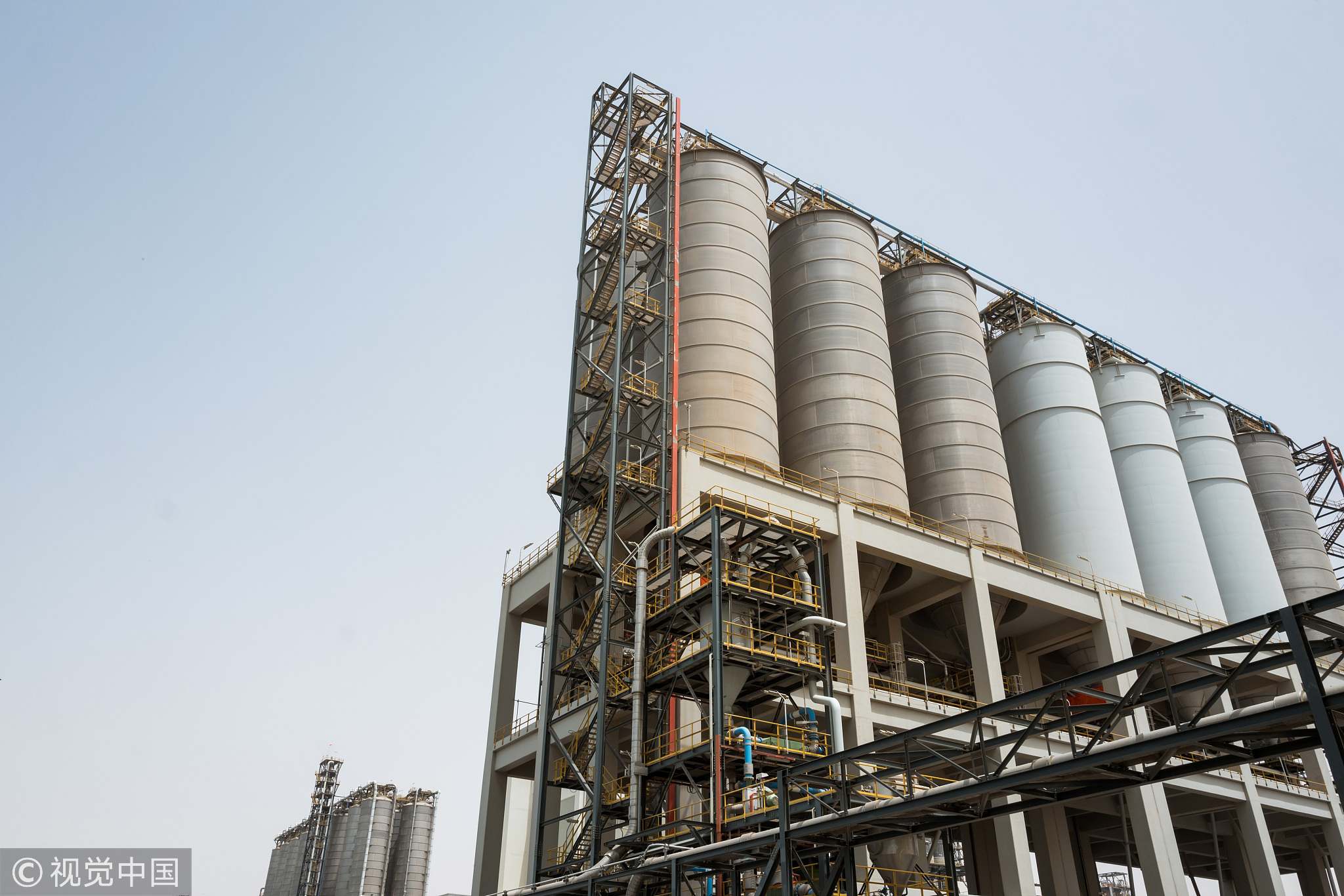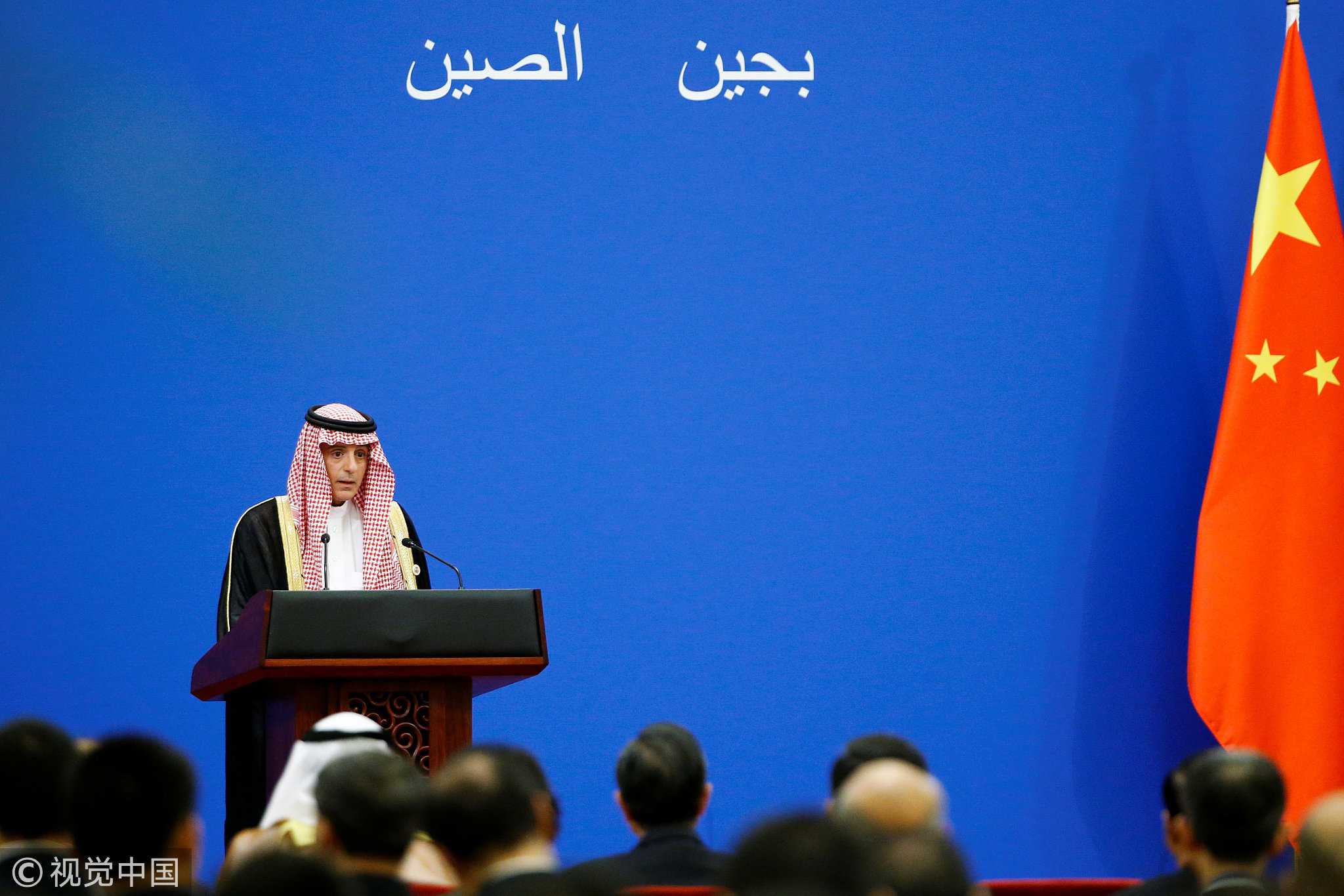
Opinions
15:57, 10-Jul-2018
Opinion: China and the Arab world: Revitalizing the ancient Silk Road
Updated
15:26, 13-Jul-2018
Long Ding
01:39

Editor's note: Long Ding is the Professor and Director at the Center for Gulf Studies, University of International Business and Economics in China. The article reflects the author's opinion, and not necessarily the views of CGTN.
As a pillar of China’s aspiration to create a community of shared future for mankind, the Belt and Road Initiative (BRI) aims at strengthening the economic connectivity with countries across Asia and beyond. Located at the junction of the Silk Road Economic Belt and the 21st-Century Maritime Silk Road, the Arab countries are natural partners of BRI.
At the 8th ministerial meeting of the China-Arab States Cooperation Forum, the Arab countries will collectively embrace the BRI by signing the declaration of joint-construction. Chinese President Xi Jinping also announced that China and Arab countries had agreed to establish a "future-oriented strategic partnership of comprehensive cooperation and common development." Therefore, China and the Arab countries are going to embark upon a better future at a new historical starting point where the joint construction of the ‘Belt and Road’ serves as a new cornerstone of the bilateral cooperation.
Four years ago, President Xi proposed at the 6th ministerial meeting of China-Arab States Cooperation Forum that the two sides should share a common vision to establish a so-called “1+2+3” cooperation framework. Under this framework, energy will form the core (“1”), infrastructure construction and trade/finance will serve as its two wings (“2”), and both will be enhanced by development cooperation in the high-tech fields of nuclear energy, space satellite, and new energy (“3”).

Processing tanks stand at the Ruwais refinery and petrochemical complex, operated by Abu Dhabi National Oil Co. (ADNOC), in Al Ruwais, the United Arab Emirates, on Monday, May 14, 2018. /VCG Photo
Processing tanks stand at the Ruwais refinery and petrochemical complex, operated by Abu Dhabi National Oil Co. (ADNOC), in Al Ruwais, the United Arab Emirates, on Monday, May 14, 2018. /VCG Photo
During the past four years, China-Arab cooperation has been expanding rapidly. As the bilateral trade volume reached 200 billion US dollars, China has become the second largest trading partner of the Arab countries, while the Arab countries are the eighth largest trading partner of China. Apart from the trade flows, the two sides have been advancing collaboration in some new fields of cooperation, such as high-tech and renewable energy.
Looking forward to the future, the joint construction of the “Belt and Road” will be critically important to develop China-Arab relations. In the meantime, the “1+2+3” framework will serve as a roadmap to enhance the bilateral economic links. Against this backdrop, some key aspects are expected to be the vehicles for realizing the aspirations of the two sides:
Firstly, the two sides should further explore the cooperation of upstream and downstream of the petroleum industry. China is the largest consumer and importer of oil in the world, while the Arab countries are China’s largest oil supplier. Nearly 40 percent of its oil imports come from the Arab countries. However, the two sides should not be confined to partners of oil trade. They should become strategic stakeholders by advancing the cooperation in upstream and downstream of the petroleum industry. In doing so, the Arab oil exporters will take full advantage of oil resources. Meanwhile, China can better secure its oil supply.
Secondly, production capacity cooperation is also an inherent part of the joint construction of the Belt and Road between China and the Arab countries. At present, bilateral production capacity cooperation is in the ascendant, and preliminary results have been achieved in a batch of industrial park projects in Egypt, Saudi Arabia, Oman, and the UAE. The two sides should step up their efforts in this regard because it is crucial for China to promote economic transformation and upgrade. Meanwhile, it helps the Arab countries accelerate the industrialization process and create more jobs.
Thirdly, there is tremendous potential to be tapped in some new areas of cooperation, such as agriculture, renewable energy, technology transfer, and joint research and development activities. Recently, Chinese scientists have successfully grown and harvested rice using seawater in the deserts of Dubai. It shows that breakthroughs can be made by exploring new areas of cooperation.

Saudi Arabia's Foreign Minister Adel bin Ahmed Al-Jubeir speaks at a China Arab forum at the Great Hall of the People in Beijing, China, July 10, 2018. /VCG Photo
Saudi Arabia's Foreign Minister Adel bin Ahmed Al-Jubeir speaks at a China Arab forum at the Great Hall of the People in Beijing, China, July 10, 2018. /VCG Photo
Last but not least, the two sides should work jointly to integrate the BRI and the development plans of the Arab countries, such as Saudi Arabia’s Vision 2030, which is designed to diversify the country’s economy. The BRI is echoed by Arab countries’ “Look East” strategy, which indicates that the cooperation between the two sides over the BRI is not only out of the historic friendship but also motivated by the fundamental interests and economic complementarity. Therefore, the two sides should highlight the commonality of development strategies and objectives, making the joint construction of the “Belt and Road” a win-win situation.
Some observers in the West believe that China has “hidden agenda” behind the BRI, arguing that China has become more active and ambitious in the Middle East in a bid to expand geopolitical reach. However, based on the non-interference principle, and rooted in the time-honored Chinese civilization, China’s involvement in the region has always been constructive and conducive to peace and security.
The BRI, as an economic plan in nature, will boost infrastructure connectivity and economic integration in the region. Therefore, it will significantly reduce violence and conflict in the most turbulent region in the world. Besides, the improvement of people’s livelihood will help destroy the breeding ground for extremism and terrorism.
The convening of the 8th meeting of the China-Arab States Cooperation Forum will usher in new era for bilateral ties through building consensus on restoring the ancient Silk Road, which will definitely bring Chinese solution to a region that has been suffering for decades from colonial legacy, rentier economy, and political instability.

SITEMAP
Copyright © 2018 CGTN. Beijing ICP prepared NO.16065310-3
Copyright © 2018 CGTN. Beijing ICP prepared NO.16065310-3